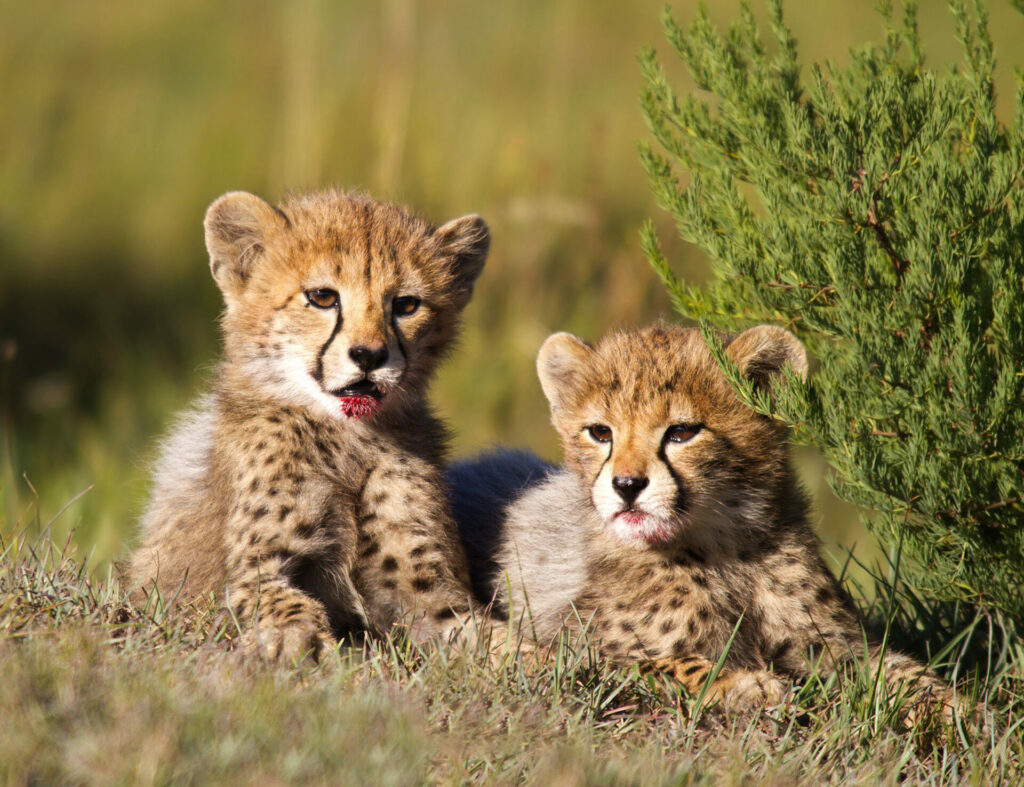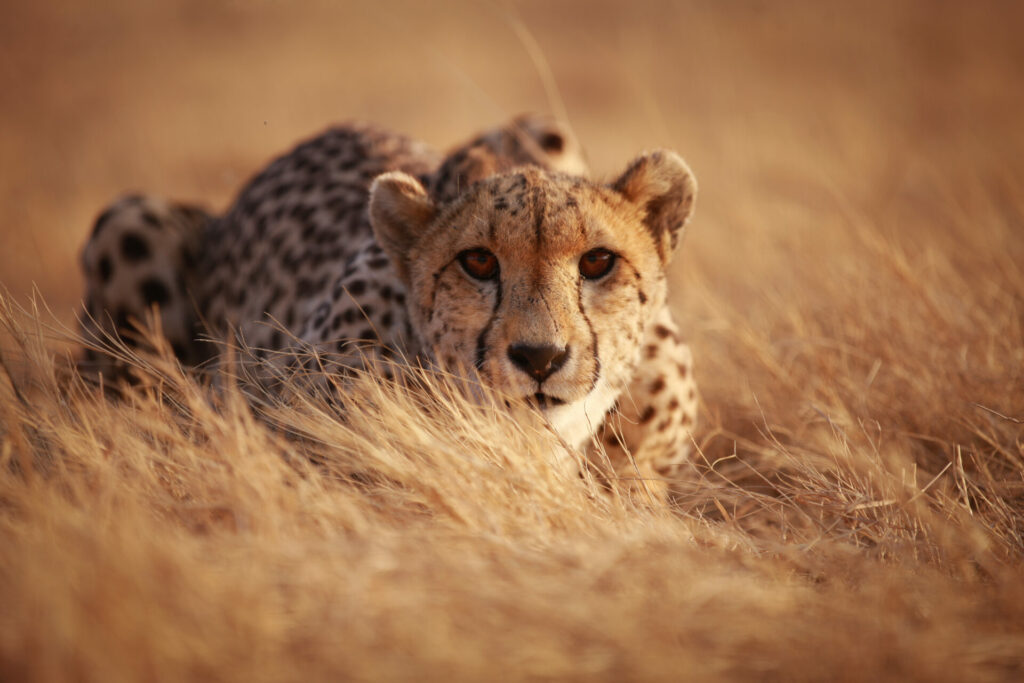Three cheetah cubs have died in India during an extremely hot spell of weather, setting back a programme to reintroduce the species to the country after 70 years of extinction.
The cheetah cubs were part of a litter of four of the distinctive spotted felines born in late March to a cheetah named Siyaya, who was one of eight rehabilitated cheetahs brought from Namibia to India’s Kuno National Park, in September last year.
The first cheetah cub died on the morning of Tuesday 23rd May, said JS Chauhan, chief conservator of the Forest Department of the central Indian state of Madhya Pradesh. Over the next two days, two other cubs succumbed to heat, dehydration and weakness, forest department officials said.
The deaths prompted vets in the national park in Madhya Pradesh state to intervene. The fourth cheetah cub in in critical care at a local hospital.
‘Its condition was also not very good, but after treatment, the cub is looking much better,’ said Chauhan. ‘Though the cub is underweight and a bit weak. Both the mother and her remaining cub continue to remain under observation,’ he added.
The week has been the hottest of the year in the area, with temperatures hitting up to 47 degrees.
On average, 30 per cent of all cubs born in human care die within one month of birth, and in Tanzania’s Serengeti National Park, about 90 per cent die before reaching three months of age,
Siyaya gave birth to the cubs more than 70 years after cheetahs were declared extinct in India as with seven other cats she arrived from Namibia, on Africa’s southwestern coast.
The were reintroduced to India last year as part of an ambitious reintroduction programme to repopulate the world’s fastest land animal by bringing in five to ten animals every year until a self sustaining population is established.

The animals are radio-collared and tracked 24/7. But ‘interventions,’ said Dr. Qamar Qureshi, who is part of the expert committee, ‘are to be exceedingly rare and only in the case of emergencies.’
While some conservationists had welcomed the reintroduction, some had warned of potential risks from other predators and not having enough prey.
The latest deaths bring to six the number of cheetahs that have died since being reintroduced into India.
Three adult cheetahs have also died. One South African cheetah died during an attempt at courtship and mating, a Namibian cheetah died of kidney disease, and another South African cheetah died due to cardiac failure.

Earlier this month, the Supreme Court expressed concerns over the animal deaths and asked the federal government to consider shifting the cats to an alternate location.
Cheetah Cub Mortality
Cub mortality is high in both the wild and captivity. On average, 30 per cent of all cubs born in human care die within one month of birth, and in Tanzania’s Serengeti National Park, about 90 per cent die before reaching three months of age.
Cub mortality is higher in protected areas like national parks and wildlife reserves where proximity to large predators is greater than in non-protected areas.
Cheetahs were declared extinct in India in 1952 and are the only large carnivore in the country to have suffered that fate. Today, they are most prevalent in Kenya and Tanzania in east Africa, and Namibia and Botswana in southern Africa. But historically, the endangered cats had a much larger range, roaming throughout the Middle East and central India as well as most of sub-Saharan Africa.
Habitat loss, poaching, and conflict with humans have greatly reduced their populations. Cheetahs are now found in only nine per cent of their historic range, with fewer than 7,100 adult and adolescent cheetahs in the wild, according to the Cheetah Conservation Fund.














